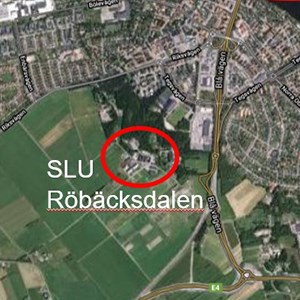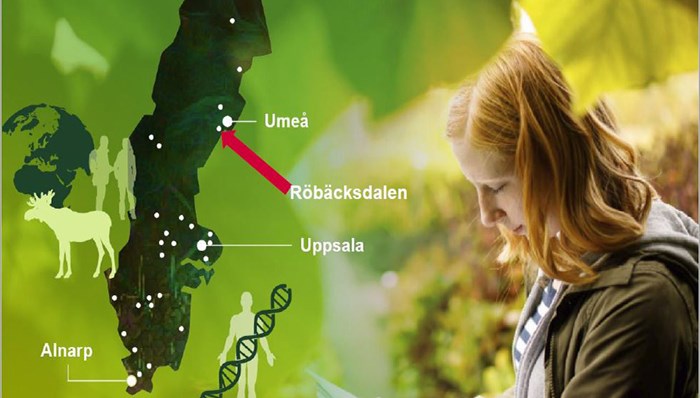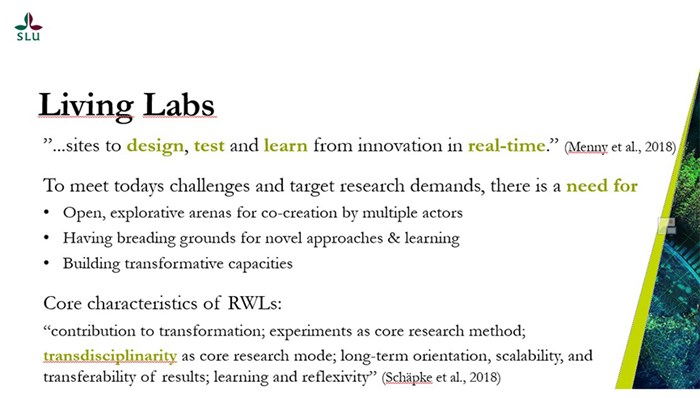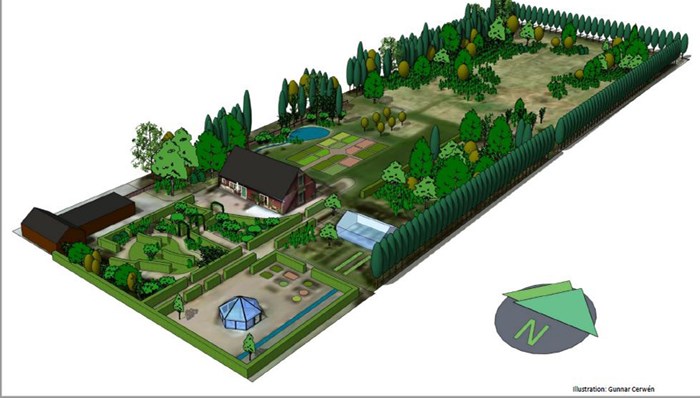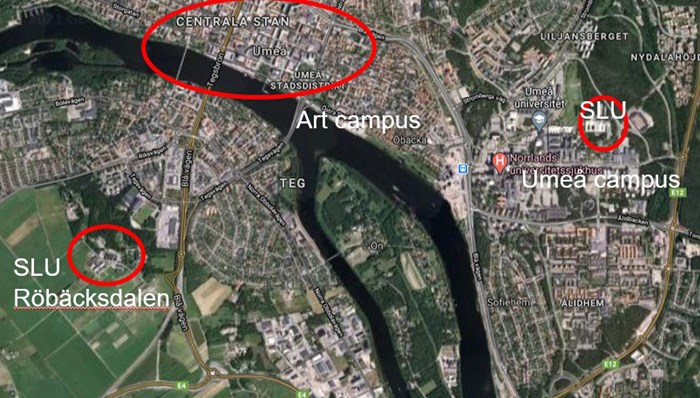On 15th April 2021, SLU Urban Futures hosted an interactive workshop as part of SLU Landscape Days to open a dialogue on conceptualizing and creating living labs on university campuses.
International guests from Delft, Utrecht and Montreal shared their experiences of working with both living labs on campus, highlighting a variety of ongoing sustainability collaborations such as circular buildings at TU Delft, using the university campus and the city as a living lab at Next Generation City, Concordia University, and a Green Office at Utrecht University. Representatives from SLU campuses at Ultuna, Alnarp and Umeå demonstrated examples of co-creation in connection to campus development. The Rehabilitation Garden as part of the new Garden Lab in Alnarp, the Knowledge Garden in Ultuna, and Röbäcksdalen in Umeå all bring together research, education and operations, animating new research dynamics and processes of learning on-site.
Participants engaged in dialogue on the multiple definitions of living labs in the virtual whiteboard brainstorming session. Whether talking about individual labs on campus, or a whole campus as a living lab, a consensus emerged that living labs are an interdisciplinary endeavour that engages multiple actors at a real-world site. Discussions highlighted that living labs are user-oriented, whether this be for educators, students, operational managers or external actors. Regardless of differences in scale and scope, the idea of a lab as “living” reiterated what our international guests and SLU colleagues presented, that they are experimental, iterative and have undefined outcomes.
Living labs create new opportunities for collaboration, and offer an arena for interdisciplinary interaction, which provokes new mindsets and organizational structures. Participants shared their experiences from working with complex sustainability issues, suggesting that this can be a driving force for living labs because it requires new ways of thinking, working and doing, where academic knowledge can engage directly with issues and actors. Our guests were positive about living labs creating a change in university culture, which would collaborate across disciplines, link communities and influence its regional surroundings.
Challenges can be viewed as opportunities in the context of living labs. Participants agreed that engaging a diversity of actors and working across disciplines is challenging because of competing interests. Similarly, the idea of iterative processes and undefined outcomes may scare many actors who ask “how do we prove success?” In this respect, participants highlighted the need for both top-down engagements to reassure actors of continued support and financing for living labs in the long-run, and bottom-up engagement to ensure creativity, relevance and co-production between actors.
The living lab workshop was the start of a dialogue between SLU campuses at Ultuna, Alnarp and Umeå to explore the potential of the living lab model. SLU Urban Futures will continue to explore ongoing lab activities and engage in further conversation through future events and projects.
